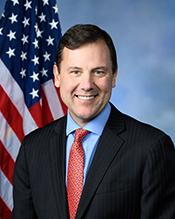H.R. 2589: Consensual Donation and Research Integrity Act of 2025
This bill, known as the Consensual Donation and Research Integrity Act of 2025, proposes to amend the Public Health Service Act in order to regulate the donation and sale of human bodies and body parts for educational and research purposes, specifically when they are not intended for transplantation. Here’s a breakdown of the bill's key provisions:
Registration Requirements
Individuals or entities engaged in acquiring and selling human bodies or body parts are required to register with the Secretary of Health and Human Services (HHS). This registration process includes:
- Submitting an application detailing the applicant's business name, operation dates, addresses, and types of services provided.
- Undergoing periodic inspections by HHS to ensure compliance.
- Renewing registration at determined intervals.
- Notifying HHS of any changes in registration information within 30 days.
Exemptions
Organizations such as the Organ Procurement and Transplantation Network, funeral service professionals, and educational institutions are exempt from registration if they do not engage in profit-making activities related to the sale of bodies or body parts.
Record-Keeping Requirements
Registered entities must maintain detailed records for each human body or body part they acquire, which should include:
- Documentation confirming donor consent for the transfer.
- The names and addresses of both the donor and the transferor.
- Details on the human body or body part acquired and any medical history associated with it.
- Documentation of how the body or body part was used or disposed of.
Labeling and Packaging Standards
All human bodies and body parts in possession of registrants must be labeled and packaged according to specific criteria, which include:
- A label indicating that the contents are not for transplantation.
- Information about the donor and the contents of the package.
- Details on testing for infectious diseases and safety precautions.
Disposition of Bodies and Body Parts
Registrants are responsible for ensuring proper disposal of human bodies and body parts according to federal and state laws. This includes either returning remains to relatives or following documented disposal instructions.
Limitations on Information Use
Individually identifiable information regarding the donors must be used and disclosed only for specific purposes authorized by HHS regulations.
Enforcement and Penalties
The bill includes provisions for enforcing compliance, which could involve:
- Fines for violators.
- Revocation of registration for registered entities that do not comply with regulations.
Applicability
The regulations established by this bill will apply to the acquisition or transfer of human bodies or body parts that occurs two years after the bill is enacted.
Definitions
The bill provides specific definitions of terms such as "donor," "human body," "human body part," "education," and "research" to clarify the scope and intent of the law.
Relevant Companies
- ANTH (Anthera Pharmaceuticals) - While involved in biotechnology, the regulation of human body parts may influence its operational procedures in research.
- ILMN (Illumina, Inc.) - As a provider of genetic sequencing technologies, compliance with new regulations may affect their research partnerships.
- BDX (Becton, Dickinson and Company) - Engagement in the medical supply chain may necessitate adjustments to comply with stricter regulations surrounding human bodies and parts.
This is an AI-generated summary of the bill text. There may be mistakes.
Sponsors
2 bill sponsors
Actions
2 actions
| Date | Action |
|---|---|
| Apr. 02, 2025 | Introduced in House |
| Apr. 02, 2025 | Referred to the House Committee on Energy and Commerce. |
Corporate Lobbying
0 companies lobbying
None found.
* Note that there can be significant delays in lobbying disclosures, and our data may be incomplete.











